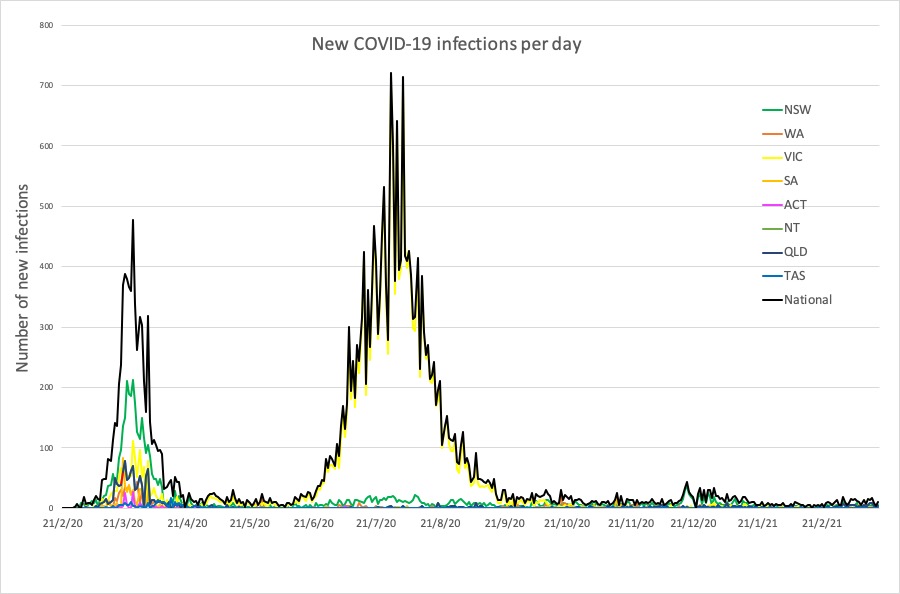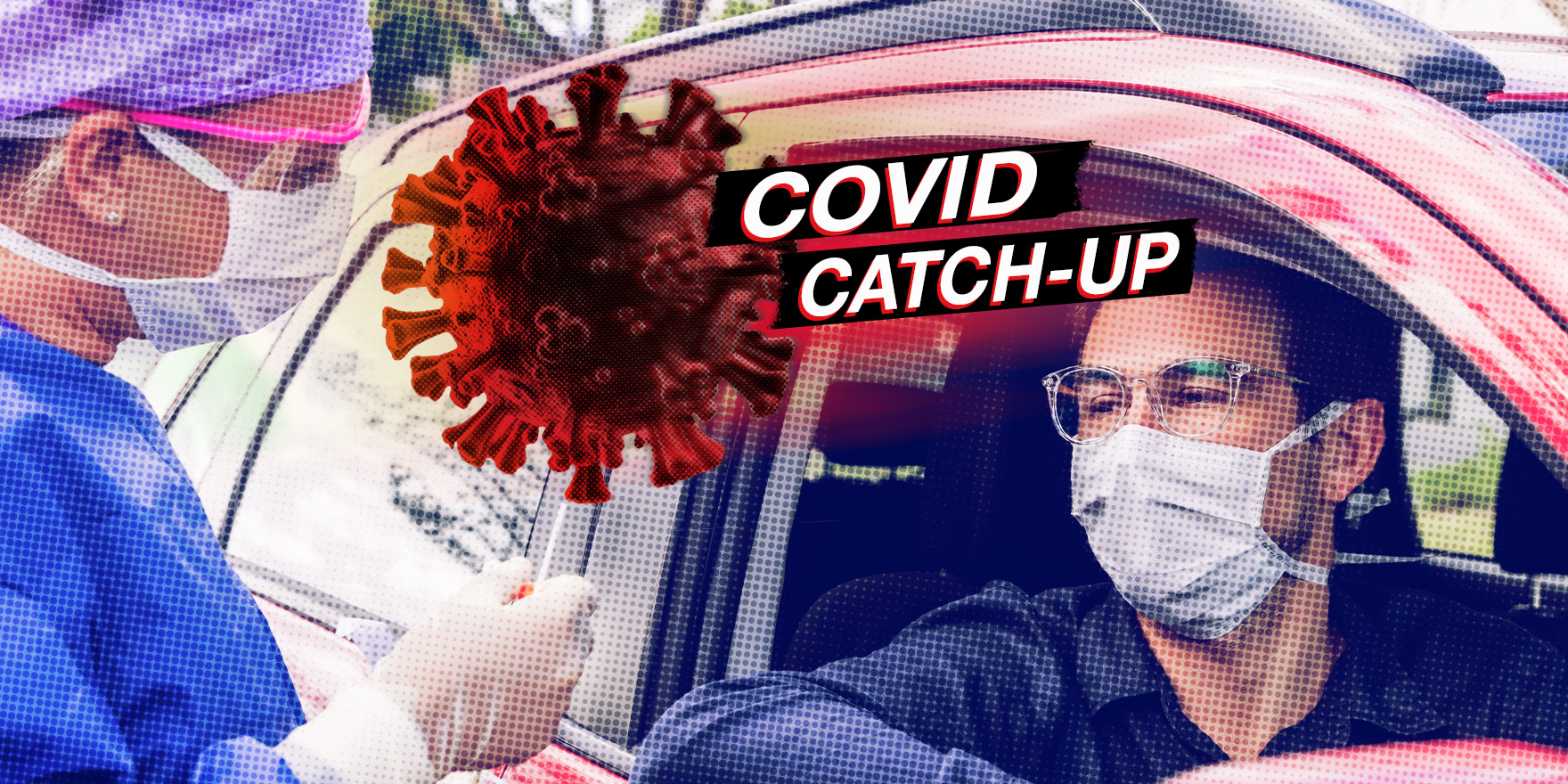And rhinovirus infection could reduce the risk of co-infection with SARS-CoV-2.
Welcome to The Medical Republic’s COVID Catch-Up.
It’s the day’s COVID-19 news in one convenient post. Email bianca@biancanogrady.com with any tips, comments or feedback.
March 23
- Infliximab for IBD associated with reduced seropositivity, study finds.
- Could the common cold reduce the risk of COVID-19?
- Victorian COVID-19 public health regulations ease.
- Latest COVID-19 infection numbers from around Australia.
Infliximab use may be associated with lower antibody response to SARS-CoV-2 infection, which could have implications for response to vaccination, new research suggests.
A study published in Gut compared the seropositive rates among 6935 patients with inflammatory bowel disease, two-thirds of whom were being treated with infliximab and one-third with vedolizumab.
While the rates of RT-PCR confirmed SARS-CoV-2 or self-reported symptoms of COVID-19 were similar between the two treatment groups, the study found around one-third fewer people in the infliximab group tested positive for SARS-CoV-2 antibodies.
Those treated with infliximab also showed reduced anti-SARS-CoV-2 reactivity compared to those treated with vedolizumab. Concomitant use of immunomodulators further decreased the likelihood of seroconversion.
“Accepting that vaccination is critical to suppress transmission, serology testing should be considered to detect suboptimal vaccine responses to inform the need for the most restrictive social distancing measures to protect patients and public health,” the authors wrote.
The much-maligned common cold has taken a back seat during the COVID-19 pandemic, but a study suggests the presence of rhinovirus in nasal passages might reduce the risk of SARS-CoV-2 getting a spike-hold.
A laboratory study using human bronchial epithelial cells, published in the Journal of Infectious Diseases, found that when both SARS-CoV-2 and human rhinovirus were applied to the same sample, the coronavirus numbers dropped rapidly. Further study suggested that the rhinovirus’s presence triggers an interferon-mediated immune response that blocks SARS-CoV-2’s replication in the epithelial cells.
“From a host’s perspective, HRV [human rhinovirus] infections, which are usually associated with mild disease, stimulate an antiviral response that prevents infections by more severe (and sometimes lethal) viruses such as SARS-CoV2 and IAV [influenza A virus],” the authors wrote.
A sniffle a day keeps the COVID-19 away?
Victorians no longer have to wear masks while shopping, but still remain masked on public transport and carry a mask at all times, from 6pm Friday 26 March.
As the state continues to keep its COVID-19 cases at zero, restrictions have eased to enable more socialising and activity.
People will be able to have up to 100 people at their home each day, and up to 200 can gather outside in an open space. Nightclubs move to density restrictions of one person per two spare metres (up from four square metres), and indoor non-seated entertainment venues can increase capacity to 75%.
The state government has also lifted the cap on private and public office occupancy.
Here are the latest COVID-19 infection numbers from around Australia to 9pm Monday:
National – 29,206 with 909 deaths
ACT – 123 (0)
NSW – 5266 (5)
NT – 106 (0)
QLD – 1421 (4)
SA – 642 (0)
TAS – 234 (0)
VIC – 20,483 (0)
WA – 931 (1)



